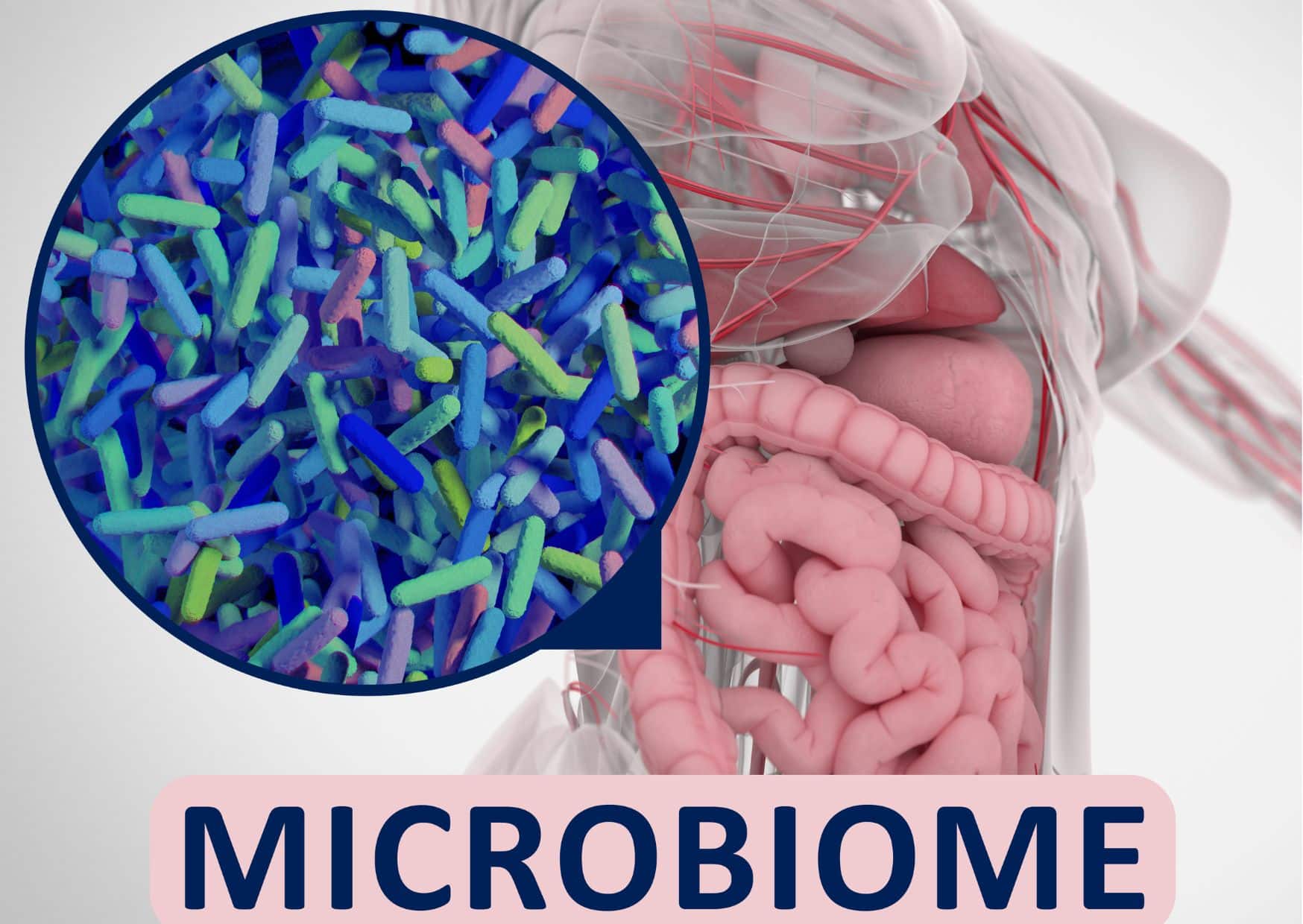
26 Jan The Microbiome: A Blueprint for Health
Microbes, those minuscule living organisms invisible to the naked eye, form the foundation of diverse life forms, including bacteria, fungi, yeast, and viruses. Collectively, these entities constitute what we refer to as the microbiome, a thriving community residing in specific environments such as the human intestines, often known as “flora” or “microbiota.” The construction of our microbiome begins at birth, influenced by the circumstances and surroundings in which we enter the world. As we interact with people and objects, our microbiome evolves, adapting to its environment over time. As a result, the state of our microbiome health is always evolving.
The Dynamic Role of the Microbiome
While conventional wisdom once confined the role of gut bacteria to regulating bowel movements, recent research has uncovered the vast influence of these microorganisms on the entire body, including the brain. Beneficial bacteria in the gut contribute to synthesising vitamins, aiding digestion, influencing mood and anxiety levels, and providing protection against infections and certain types of cancer. Moreover, specific strains of beneficial bacteria are associated with lower rates of obesity, diabetes, and various gastrointestinal diseases.
Microbial Imbalance and Health Implications
An imbalance in the microbiome, characterised by an excess of harmful bacteria or a deficiency of beneficial ones, can lead to serious health issues. Factors such as stress, surgery, illness, trauma, and unhealthy eating habits can inhibit or eliminate populations of good bacteria. Antibiotics, while effective against disease-causing bacteria, also indiscriminately eliminate beneficial microbes. Therefore, maintaining a healthy microbiome involves conscious efforts to nurture it through lifestyle choices and dietary practices.
Feeding the Microbiome
The foods we consume significantly impact the composition of our microbiome. Many microbes assist in extracting nutrients from otherwise indigestible food, with different microbes thriving on specific types of dietary components. To stimulate the growth of beneficial bacteria, known as probiotics, incorporating prebiotics into our diet becomes crucial. Prebiotics are foods that support the flourishing of probiotics.
Tips for Microbiome Health Maintenance
- Stay hydrated: Consume approximately half your body weight in ounces of water and other non-caffeinated beverages daily.
- Include both prebiotic and probiotic foods in your diet: Foster the growth of beneficial bacteria by incorporating these foods into your meals.
- Consume high-fibre vegetables: Enhance the health of your digestive system by incorporating fibre-rich vegetables into your diet.
- Limit processed foods, added sugars, artificial sweeteners, and trans fats: Opt for a diet rich in whole, unprocessed foods to support a thriving microbiome.
- Identify and avoid food sensitivities: Steer clear of foods to which you may be sensitive, intolerant, or allergic, such as corn, dairy, eggs, fish, peanuts, soy, tree nuts, and wheat (gluten).
- Use antibiotics sparingly: Only take antibiotics when medically necessary, and supplement with probiotic foods and supplements during and after the antibiotic course to rebuild a healthy bacterial population in your gut.
Stool Testing
If you’re grappling with symptoms like burping, irregular bowel movements, bloating, or post-meal discomfort, or if you have an autoimmune disease or chronic immune challenge, a CDSA stool test could offer valuable insights into your gut microbiome.
What results can you anticipate? What will you discover about your health?
CDSA results empower us to provide personalised dietary advice and suggest therapeutic natural medicines, facilitating the restoration of vitality. You’ll gain insights into:
- Adequate production of digestive enzymes for efficient food breakdown and absorption.
- Levels of beneficial bacteria safeguarding your immune system.
- Presence of excessive bacteria causing issues like fermentation, constipation, or excess wind, along with tailored strategies for natural eradication.
- Presence of undigested food in stool, including fats, vegetable fibres, or meat fibres.
- Digestive markers supporting optimal digestion.
- Fermentation of food in the gut leading to excess bloating and flatulence.
- Markers for colonic function and liver detoxification.
- Presence of excess yeasts (candida) and parasites, with personalised treatment recommendations.
- A comprehensive table of effective inhibitors for specific bacteria, aiding in targeted treatments.
Are you interested in stool testing and looking for a good Naturopath or Nutritionist in Perth to help you on your healing journey?
